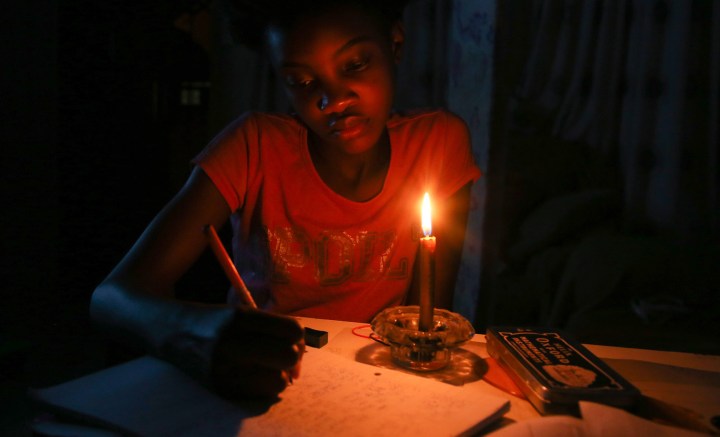POWER CRUNCH
R400-million debt — national, provincial governments don’t pay their Joburg City bills

Big squeeze for Johannesburg residents as Johannesburg Budget announces an increase in electricity tariffs by 7.47%, water by 9.75%, sanitation by 9.75% come 1 July.
National and provincial governments owe the City of Johannesburg R400-million in unpaid rates and taxes, the city’s finance MMC Julie Suddaby revealed, tabling a R77.3-billion budget on Wednesday, May 25.
The city is struggling with debt, and while it has collected R300-million from national and provincial government debtors in five months, tariffs go far beyond the current consumer inflation rate of 5.9%. Electricity tariffs will increase by 7.47%, water and sanitation costs by 9.75% and refuse removal by 5% as of 1 July.
Electricity and water outages are regular occurrences in Johannesburg, while the inner-city and surrounds are often a tip of uncollected garbage.
Power cuts are the biggest beef of the city’s six million residents, and electricity infrastructure will get a R1.2-billion budget for the year — a tiny amount given that City Power says it will take R26-billion to fund an essential overhaul. The multi-party government, which took office in November 2021, inherited a broken city, said Sudabby.
“Sadly, the residents of Johannesburg have become hopeless in their discontent,” she said. Unlike many municipalities, the city gets few conditional grants from the central government, and it funds its own operational and a large chunk of capital expenditure from its rates base.
But semigration, remote working and Covid-19 took a scythe to the city and revenue collection dipped to its lowest-ever levels. Collections are recovering with R4.2-billion collected in March, up R1.6-bn year on year. Johannesburg’s road networks are peppered with potholes and other holes dug up by Johannesburg Water. The Johannesburg Roads Agency will get R1.1-billion for capital expenditure, while R930-million goes for water and sewer infrastructure.
The Durban floods have revealed how successive ANC governments failed to maintain drainage systems to the detriment of that city. Johannesburg is one flood away from a similar fate as many roads end up water-logged after rains because storm-water drains have not been maintained.
Sudabby has committed R4-billion to public transport, with R519-million for capital expenditure, including the re-cabling of traffic lights. Johannesburg’s traffic light network is more often out than on. She delivered one of the most honest city budgets in recent years, saying:
“[Johannesburg] is a city of broken promises. Broken streetlights and broken traffic lights. Broken power substations and sewer pipes. Our residents are not fooled by comforting clichés and catchy phrases.”
How low can they all go, Mr President? The case of the still unbreakable Mr Mbalula
Ten highlights in the city budget
- Pension rebates on rates on property values R2.5-million and below
- R1.3-million for park rangers to keep parks safe
- R200-million for 20 fire engines
- The city will revitalise municipal courts with a dedicated prosecution unit for by-law violations
- 17,504 public work opportunities
- 2,252 new houses and R600-million for informal settlement upgrades – over three years
- 2,500 low rent and rent-to-buy units and 895 social housing units
- 500 frontline staff to be trained in customer service
- 500 WiFi hotspots in public spaces
- The city will support 14,500 small and medium-sized businesses. DM
[hearken id=”daily-maverick/9472″]

















 Become an Insider
Become an Insider
I am interested in the evidence you have gathered to claim that: “The Durban floods have revealed how successive ANC governments failed to maintain drainage systems to the detriment of that city.” Whilst I cannot speak for the current management, in the almost 10 years I was City Manager I reported in to the executive Committee of ANC, DA, IFP and MF members, they never changed (and nor had anyone else) changed any budgets for the following services which had been finalised by professional engineers: water, sanitation, electricity, roads, transport and waste. eThekwini had then (I don’t have figures for now) more professional engineers than any other municipality in SA and the planning and engineering teams have received numerous awards recognising their competence. There are issues I do know about which contradict your assertion and I am also trying to find out from professional experts what really happened. I do think such claims add no value to the above article. Michael Sutcliffe
The evidence sir, shows that you clearly had no idea what was happening under your watch. I’d be very careful about what you say, based on what actually happened. Would love to see some of these reports you refer to, referencing that against the TV footage we can all refer to.
Before you make such claims please tell me what you know about these matters. Let’s start with the simple things that should be established first, including: (i) rainfall levels across the city in the first and second period of storms in terms of them being from 1 in 10 years to 1 in 200 year rainfall; (ii) what the capacity of soils to hold water in the affected areas happened to be compared to this rainfall; (iii) what the engineering and other design specs were to manage water flows, (iv) what impact Shongweni had on the South Durban basin, (v) what poor building/maintenance/other technical issues existed that would have exacerbated the situation. There is no doubt in my mind that management are empirically analysing the degree to which they managed the five key areas of Emergency (Disaster) Preparedness and response. That is what we should be understanding before we make silly comments as climate change is undoubtedly here to stay and telling us that we need to build more resilient cities. I look forward to hearing the facts that both Ms Haffajee and Mr. kelly have that lead them to the conclusion they have made.